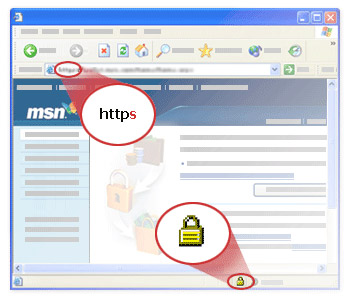Small Business Skydiving
Topic: Entrepreneur Evangelist | Comments (1)
 As my year-end consumption of ‘top ten lists‘ continues, I came across one on Chicago Now called “The Top 10 Small Business Trends of the Decade” by Barry Moltz. In the list he mentions several things that have all dovetailed together to define the changing nature of work — most centered around the pros and cons of mobility.
As my year-end consumption of ‘top ten lists‘ continues, I came across one on Chicago Now called “The Top 10 Small Business Trends of the Decade” by Barry Moltz. In the list he mentions several things that have all dovetailed together to define the changing nature of work — most centered around the pros and cons of mobility.
While I certainly wouldn’t argue that his list is wrong, it is very similar to several others I have seen, and I continue to think these lists are only peeling back the first layer of the onion. Barry’s list includes items in three basic, separate categories:
Mobility:
- The internet allows geographic independent sales and marketing.
- The movement to reduce costs and commuting by working at home.
- Mashing of work and home spaces.
Social web:
- We are more easily able to network and keep in touch with people from our past.
- Size no longer matters.
- Customer Service makes a comeback.
- You are your own brand.
New economy:
- Less credit, more cash is king.
- Less benefits, higher deductibles.
- A new class of employee appears.
The details that Barry highlights in each of his bullets just grazes the surface of these bigger buckets. And, even more significantly, these are revolutionary social changes that effect all business, not just small business. What I find more interesting is their unique influence on small business versus their broader social impact.
Mobility
Obviously there is no one who has to be convinced that the second generation of the internet, with it’s capacity for permanent mobility, has changed everything. Socially it means that states and municipalities have to pass new laws about using cell phones while driving; large business has to implement both policies and infrastructure to support workforces that are increasingly likely to be conducting work outside the corporate firewall; and small businesses can get up and running without having to see their opportunities limited by where they prefer to live.
But the bigger implication about mobility for small business is, I would argue, “the cloud.” Cloud computing (in its broadest definition), and specifically Softward as a Service (such as WorkingPoint, VerticalResponse and Business Online Payroll), is a double-edged sword in the world of small business. Not only has it made tools and resources that used to only be available to big companies financially accessible to small businesses, but many of these companies are themselves small businesses.
The fact that a couple of developers with a great idea and some solid experience, can now leverage enormous outsourced technology infrastructure to build, host, manage and ultimately distribute their product to anyone in the world is revolutionary. The cloud has extended everyone’s reach and has eliminated several of the biggest barriers to entry that existed when I started working on the technology space back in 1996.
The Social Web
This, of course, is this year’s hottest topic. The social web went from being an outlier, specifically and uniquely for either early adopter tech geeks or Gen Y young’ins, to being super hip mainstream, ‘cutting edge’ mass media. As Barry notes in his list, this has made a huge impact on how brands need to function in order to maintain their integrity — both on a personal and a business level (re: his points about customer service and company size). But what’s the real seismic shift here?
The true impact of the social web is privacy. Or, more accurately, the line between private and public. Never before has it been more blurred, and it’s going to get more confusing before it gets less so. Therapists will often point out that it only takes one person in a relationship to change the entire relationship dynamic: if you change your behavior, then it forces the other person’s behavior to change as well. This principle is seen daily on the social web.
When customers change their behavior, it forces business to change. Hence changes we see in the realm of customer service: a person can complain about a brand experience they had on Twitter, and see anything from immediate resolution to a lawsuit, depending on how the brand in question decides to handle things.
When employees change their behavior, it forces employers to change. Businesses cannot reasonably ask their employees not to participate in the social web. So how do they handle react when one of their employees becomes a bit of a social media celebrity, whose personal brand radically out-shines the company brand?
When citizens change their behavior, it forces the government to change. “Transparent government” and “Gov2.0” are two other key watchwords from 2009 that were nearly unheard of a year ago. But now that individuals have come to expect to know things about the companies they deal with by virtue of online information, that expectation has transfered to government activities as well. Two years ago, who would have thought that Congress would have it’s own YouTube channel? Or that a presidential candidate’s success could have been largely impacted by the use of Twitter?
Where is the line between private and public? Tools that started out as personal use tools (e.g. Facebook and Twitter) are now platforms for business innovation. The line between the two is different for everyone, and that creates a challenge, because the choices that one person makes will impact other people, whether those other people like it or not. How many times have you seen someone post a picture to Facebook or Flickr that includes other people who may not have wanted the picture posted?
There is a certain amount of privacy that a social web automatically steals from us. The questions are how much is necessary, and then how much is comfortable. The tricky part is that depending on the application and the person, those answsers change. And only being in the first generation of the social web, we are a long way from sorting out those pesky little details.
New Economy
My favorite topic of all, is the new economy (which I would define as the economic realities inherent to our modern lives as a result of, among others, the two factors above: mobility and social web). But this is also the one that is routinely most difficult for people to get their heads around, because the ripple effect is pervasive, throughout every facet of our lives.
Old definitions no longer apply: “conservative” versus “liberal” are ill-fitting labels in a world of updated economic and social conditions that re-draw the political lines without even trying. Words like “stability” and “security” are no longer applicable to the job market, after three decades of being considered the corporate Holy Grail. And in a nation that was spurred to global dominance on the back of an Industrial Age economic engine, a nation of “knowledge workers” now routinely offshores work to less expensive parts of the world on a daily basis.
There are some pretty enormous downsides to the new economy — no more pensions, no more covered healthcare, no more job security. But there are also some amazing opportunities in it — no more being stuck having to live someplace you don’t want simply because of its proximity to your job, no more expectation of having to let someone else define your rise up the corporate ladder on their terms and timelines, no more wistfully dreaming of being your own boss because it costs too much to start your own business. Think of it like sky-diving: for some people it represents the most terrifying nightmare imaginable; for other people it is the single biggest thrill they could ask for.
As with most change, the pros can be just as compelling as the cons, depending on your point of view. Socially speaking, the new economy means that goods and services that used to be out of reach for the average person are now vastly more affordable — everything from international travel to high tech toys. For large enterprises, the ability to offshore entire divisions of your business means huge cost savings, and leaner in-house talent able to focus on the most high-value added functions. For small business, the ability to dynamically pull together freelance, geographically distributed teams to execute on projects as needed, means being able to compete with larger firms without having to take on the overhead of formal staff.
So, yes, Barry’s list of small business trends is technically accurate. But the reality is that the changes his list represents are even bigger. And the reason they have such an enormous impact on small business is that these factors have already fundamentally shifted the social foundations on which small business is built.
Alora Chistiakoff is an entrepreneur, content strategist and project manager who has been developing online business and technology for startups for more than a decade. She co-owns The Indigo Heron Group, Inc., a content strategy firm in Austin, Texas.


 My love of lists (must be a project manager thing!) gets me again. The Vaynerchuck brothers at VaynerMedia have offered up what they consider the
My love of lists (must be a project manager thing!) gets me again. The Vaynerchuck brothers at VaynerMedia have offered up what they consider the  Tim Berry
Tim Berry

 One of my favorite things about the information economy is the extent to which a highly commoditized, social web lowers the barrier to entry for prospective entrepreneurs. While some of us elect to dive into owning our own business head-first with little or no safety net, that’s not the best way for some people. Many people need to ease their way into entrepreneurship, and one of the ways I most enjoy watching is through their hobbies.
One of my favorite things about the information economy is the extent to which a highly commoditized, social web lowers the barrier to entry for prospective entrepreneurs. While some of us elect to dive into owning our own business head-first with little or no safety net, that’s not the best way for some people. Many people need to ease their way into entrepreneurship, and one of the ways I most enjoy watching is through their hobbies.